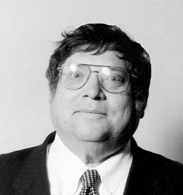WASHINGTON, July 24 (JTA) — Since the day President Bush nominated John Roberts to fill the open seat brought about by Justice Sandra Day O’Connor’s announced retirement, a panoply of interest groups — liberal and conservative — have geared up for political warfare. Each side has committed millions to a battle royal, leaping into the fray to “define” the nominee even before the confirmation hearings. Jewish groups ought to steer clear of this rank politicization of the judicial process. It ill serves Jewish interests and hurts the rule of law as well. Liberal Democrats started down this road of politicization with their 1987 opposition to Robert Bork’s Supreme Court bid. Since then, both sides have treated nominations to lower federal courts as a political mud fight, creating a single-issue litmus test that they avowedly use to judge judicial nominees on the basis of politics, not on the basis of their judicial skills. Indeed, in a 1991 New York Times op-ed, U.S. Sen. Charles Schumer (D-N.Y.), a member of the Senate Judiciary Committee, maintained that the senators should feel free to reject nominees on the basis of their ideology notwithstanding their qualifications and competence. This politicization, of course, is a function of the rampant judicial activism that has plagued the court in recent years. Part of this is the fault of the U.S. Congress, which continually delegates difficult policy choices to the courts, refusing to bite the bullet. But a larger part of the blame belongs to the judges, too many of whom have freely substituted their own policy preferences for the legislatures’ on issues great and small. This is not a question of one’s approach to statutory interpretation but rather of inappropriate, indeed often “poetic,” license by judges in interpreting statutes as well as the U.S. Constitution. Judges, we must remember, are lawyers; they are not politicians and should not be treated — or for that matter behave — as such. President Bush understood this when he nominated John Roberts to Justice O’Connor’s seat. Roberts is a lawyer’s lawyer who will approach cases as a lawyer, not a politician. He will look at the facts and the law set before him rather than bring a preordained political or social philosophy to cases. That is why the Washington legal community, Republican and Democrat, has so heartily applauded this appointment. And that is precisely why liberal interest groups are threatening to turn the confirmation process into political theater rather than an analysis of his judicial philosophy and temperament. Roberts’ professional resume is extraordinary. At the age of 50 he has been an appellate court judge, a distinguished government lawyer, a litigator before the Supreme Court with 39 arguments to his name, the managing editor of the Harvard Law Review and a respected insider in the Washington legal profession. True, he is by instinct a conservative who accepts, as he puts it, “the cardinal principal of judicial restraint,” but one should expect no less when the nation has trended “red” in recent years, twice electing a conservative president and a conservative Congress. Few now believe that Democratic senators have the moxie to filibuster this nomination. The question on the table is whether they will turn the confirmation process into political judge baiting for their own institutional needs. Senators have the right — and indeed the duty — to inquire about a nominee´s general judicial philosophy — including his general jurisprudential approach to the commerce clause or the “right of privacy.” They can ask about his preferred method of constitutional and statutory interpretation and his vision of the role of the courts in a democracy. They should not, however, demand answers regarding a nominee’s personal political philosophy or how he or she will vote when faced with a particular set of facts. If asked these questions, a nominee should refuse to answer. We should remember Justice Ruth Bader Ginsburg’s dissent in the case Republican Party of Minnesota v. White. She points out that judges are expected to refrain from “committing themselves on controversial issues in advance of adversarial presentation.” Indeed, when it comes to “how a prospective nominee for the bench would resolve particular contentious issues,” she reminds us in a footnote, “every member of this court declined to furnish such information to the Senate and presumably to the president as well.” Thus the Jewish organizations, like the Democratic senators, have a choice: They can limit their questions to scrutinizing the nominee’s legal skills, seeking an explanation of his judicial philosophy and exploring his judicial temperament. Or they can set up single-issue litmus tests, grill the nominee on his personal, political or religious beliefs or try to trap him into commenting on how he will vote on particular legal issues and factual settings likely to come before the court. Already groups like the National Council of Jewish Women have thrown down the gauntlet. Whether they are using the confirmation process to mobilize their base, energize funding sources or set down markers for the 2006 congressional election, they undermine the judicial process and embarrass themselves. Jewish groups in the past have never politicized the confirmation process. For the sake of the rule of law, one can only hope they will reconsider. Marshall Breger is professor of law at the Columbus School of Law, Catholic University of America. He was a special assistant to the president under Ronald Reagan and was Reagan’s liaison to the Jewish community.
JTA has documented Jewish history in real-time for over a century. Keep our journalism strong by joining us in supporting independent, award-winning reporting.






